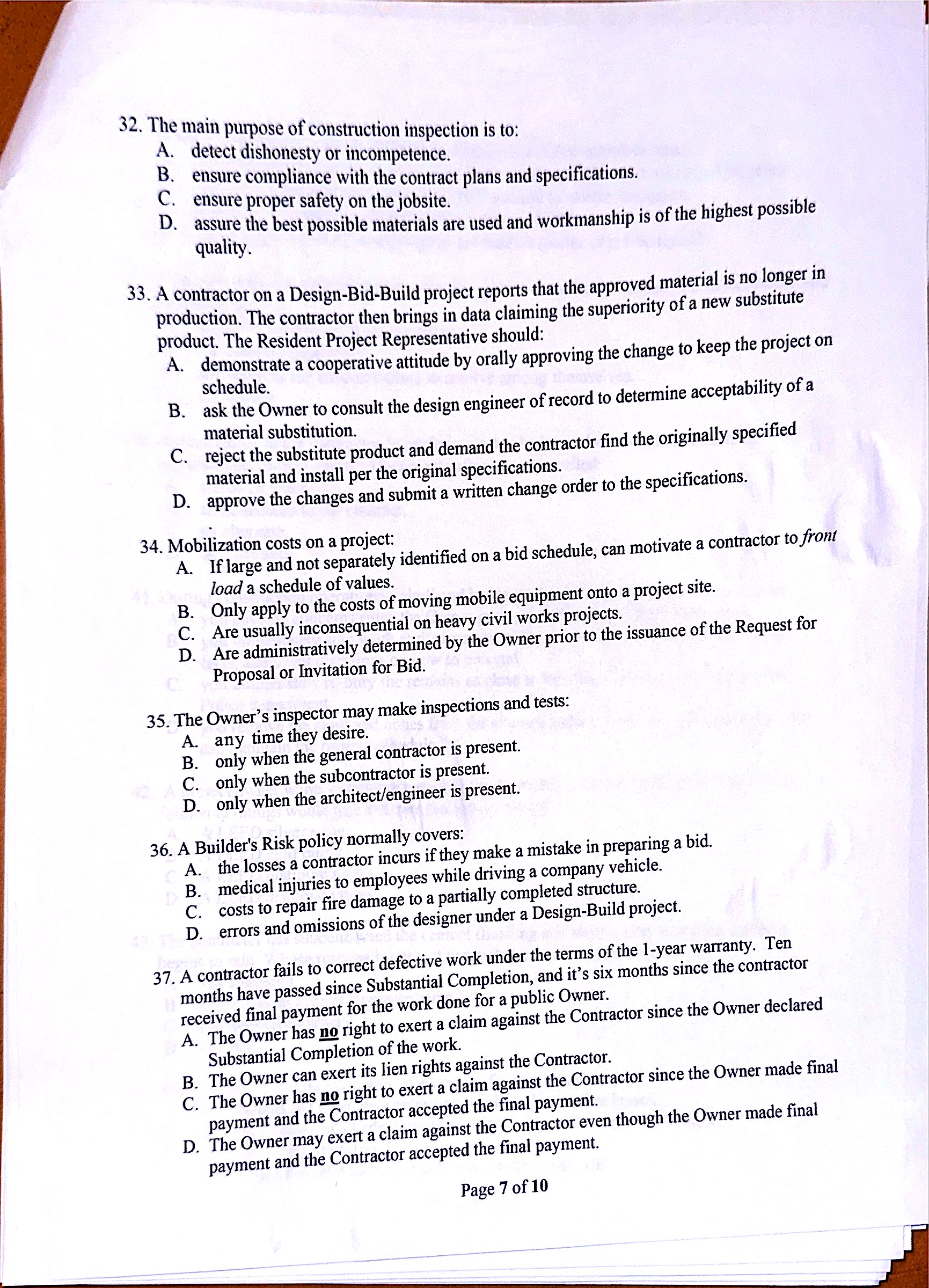Home /
Expert Answers /
Civil Engineering /
32-the-main-purpose-of-construction-inspection-is-to-a-detect-dishonesty-or-incompetence-b-ens-pa798
(Solved): 32. The main purpose of construction inspection is to: A. detect dishonesty or incompetence. B. ens ...

32. The main purpose of construction inspection is to: A. detect dishonesty or incompetence. B. ensure compliance with the contract plans and specifications. C. ensure proper safety on the jobsite. D. assure the best possible materials are used and workmanship is of the highest possible quality. 33. A contractor on a Design-Bid-Build project reports that the approved material is no longer in production. The contractor then brings in data claiming the superiority of a new substitute product. The Resident Project Representative should: A. demonstrate a cooperative attitude by orally approving the change to keep the project on schedule. B. ask the Owner to consult the design engineer of record to determine acceptability of a material substitution. C. reject the substitute product and demand the contractor find the originally specified material and install per the original specifications. D. approve the changes and submit a written change order to the specifications. 34. Mobilization costs on a project: A. If large and not separately identified on a bid schedule, can motivate a contractor to front load a schedule of values. B. Only apply to the costs of moving mobile equipment onto a project site. C. Are usually inconsequential on heavy civil works projects. D. Are administratively determined by the Owner prior to the issuance of the Request for Proposal or Invitation for Bid. 35. The Owner's inspector may make inspections and tests: A. any time they desire. B. only when the general contractor is present. C. only when the subcontractor is present. D. only when the architect/engineer is present. 36. A Builder's Risk policy normally covers: A. the losses a contractor incurs if they make a mistake in preparing a bid. B. medical injuries to employees while driving a company vehicle. C. costs to repair fire damage to a partially completed structure. D. errors and omissions of the designer under a Design-Build project. 37. A contractor fails to correct defective work under the terms of the 1-year warranty. Ten months have passed since Substantial Completion, and it's six months since the contractor received final payment for the work done for a public Owner. A. The Owner has no right to exert a claim against the Contractor since the Owner declared Substantial Completion of the work. B. The Owner can exert its lien rights against the Contractor. C. The Owner has no right to exert a claim against the Contractor since the Owner made final payment and the Contractor accepted the final payment. D. The Owner may exert a claim against the Contractor even though the Owner made final payment and the Contractor accepted the final payment.